An oasis for children’s minds: Dhaka’s community Play Labs
Tucked off a busy street in Dhaka, Bangladesh, children laugh and learn at a colorful oasis: a Play Lab.
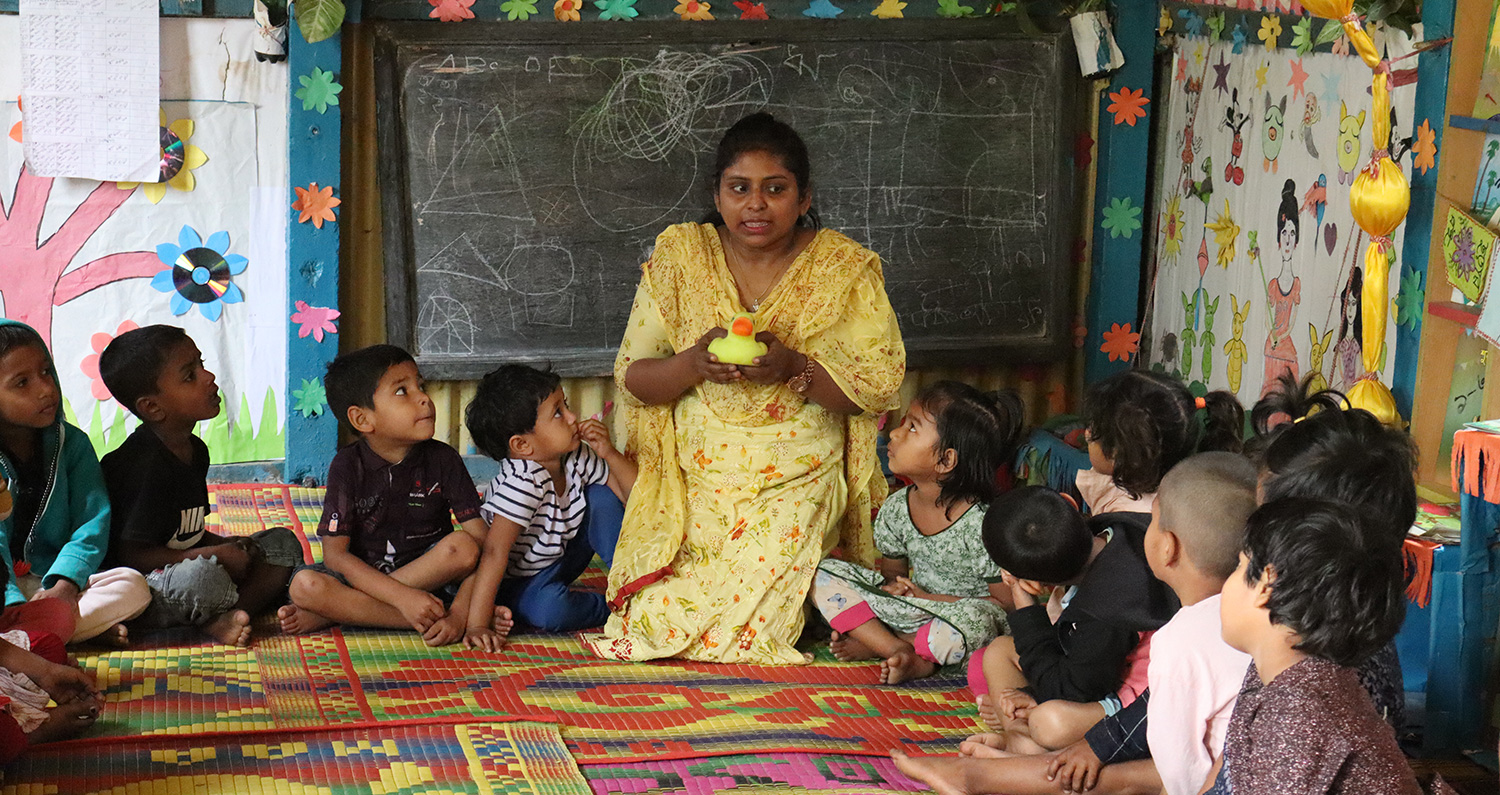
BY MICA BEVINGTON
Tucked into a community near a busy industrial area, off a busy road lined with local shops, at the end of a dirt alley, there is a small path.
It leads to an oasis of green plants and a colorful playground.
A child’s paradise.
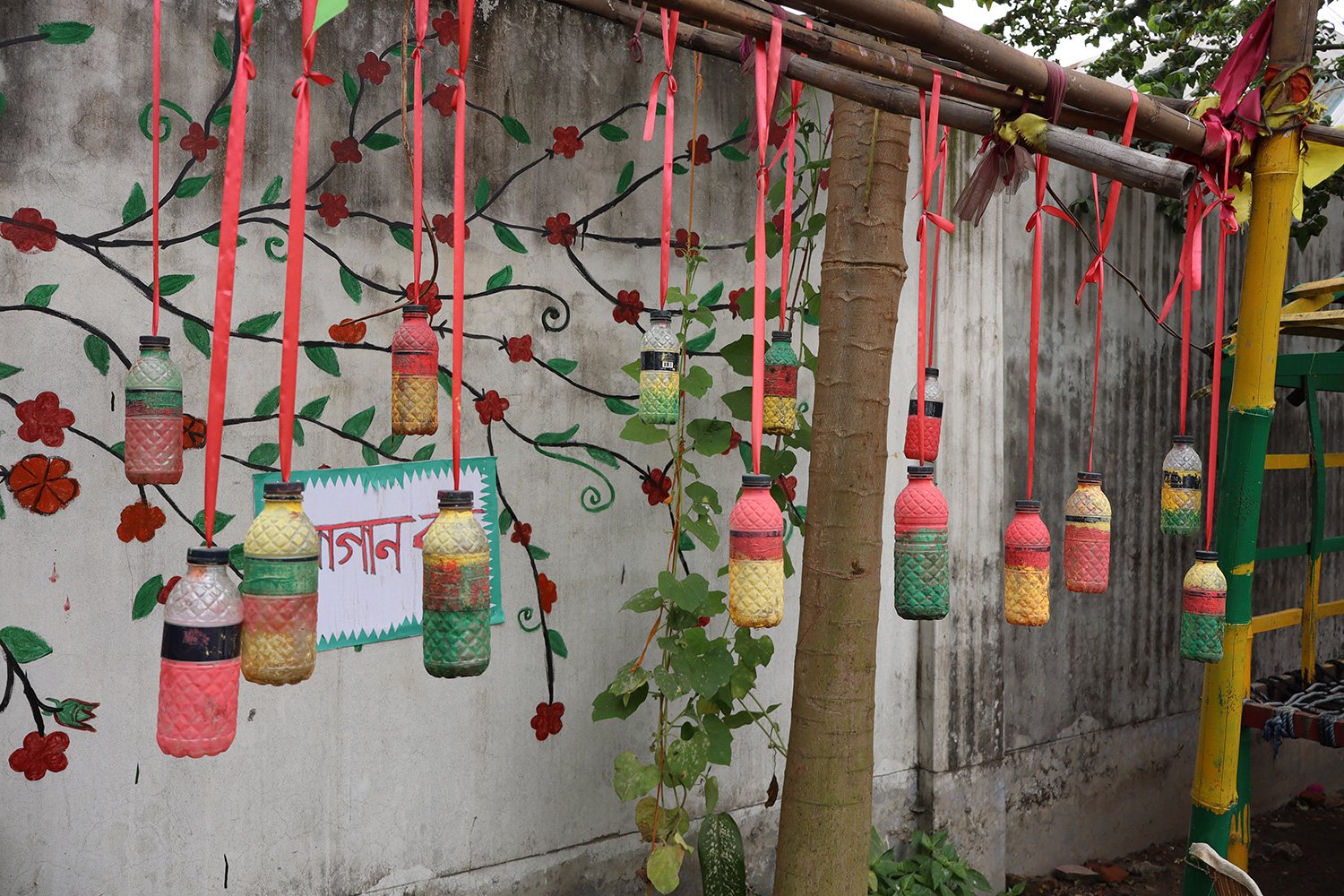
I feel like something of a surprise to find in Dhaka, Bangladesh. Home to nearly 24 million people, Dhaka is one of our planet’s most densely populated cities. Residents live life to a soundtrack of car horns and the no-nonsense bells of rickshaws, and yet also chirping birds! The air can sometimes be dense with smog. And each day, it’s estimated that 1,000 people arrive from rural areas with hopes of a better life.
The playground is empty, but the sound of small voices echoes out of the one-room building ahead.
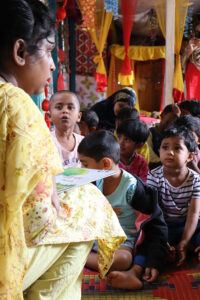 Laughter. A teacher’s boisterous voice rings out. Dressed in bright yellow, with a commanding, kind voice, she has their rapt attention as she reads a storybook about Bangladesh’s six – yes six! – seasons.
Laughter. A teacher’s boisterous voice rings out. Dressed in bright yellow, with a commanding, kind voice, she has their rapt attention as she reads a storybook about Bangladesh’s six – yes six! – seasons.
The children are hugging their chests, pretending to be cold. It’s winter! They laugh. Now they are flapping their arms like birds. It’s spring! More laughter.
Each year, this BRAC Play Lab nurtures the hungry minds of 90 children ages 1-5. Here children’s minds develop through play – a novel concept in a country better known for its rote teaching methods. Across the country, such Play Labs graduate more than 27,000 learners each year.
“They learn listening skills,” explains Amena Akter, the khelar shaathi, or Play Leader. “They learn how to express themselves with art & crafts, storytelling and role playing. You can achieve all this through play.”
They learn listening skills. They learn how to express themselves with art & crafts, storytelling and role playing. You can achieve all this through play.” – Amena, Play Leader
These are the lucky children. Having secured a coveted spot in a Play Lab, their pathway to enroll in primary school is almost assured. BRAC’s Play Labs, operational since 2016, have been proven to set up Bangladesh’s smallest learners for success in primary school.
When story time ends, the teacher patiently helps them form a circle. They begin playing a version of Duck-Duck Goose, each child desperate to be chosen next. “You may have a turn next time,” Amena assures them.
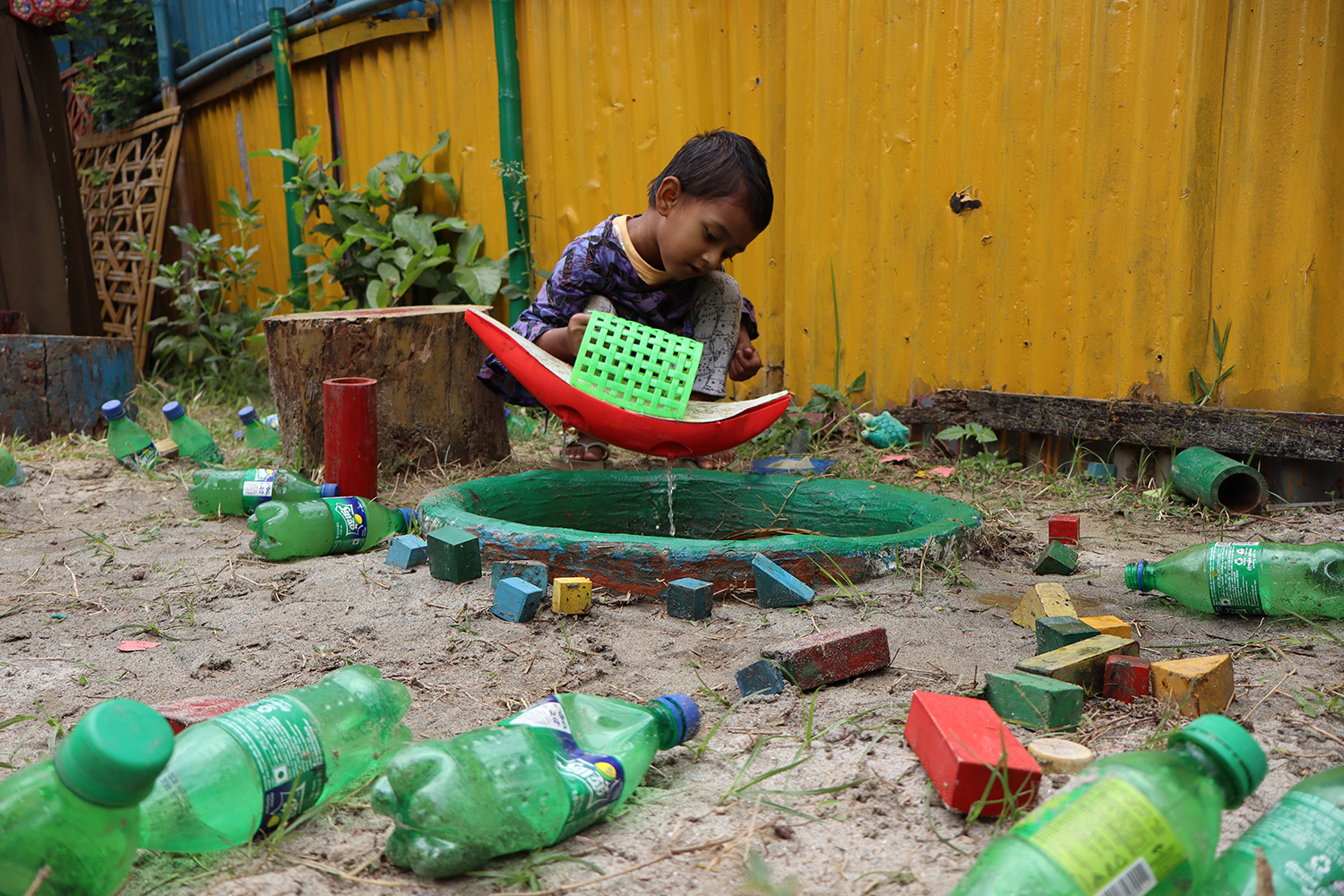
During “Play As You Wish” time, they explore a mix of stations. The playground, or bairer bhubon as the children know it, is a favorite, complete with a small water play area. The children call their painting corner ronger bhubon, where serious-looking artists know there’s always a steady supply of paints and crayons.
The aapon bhubon space, or private world, is set apart by sheer curtains, and provides a spot to rest or play quietly. A reading nook, called golper bhubon, offers a mix of colorful stories. And the free-play area, shopner bhubon is bursting with colorful toys, many made by talented mothers who can sew plush dolls, knit jute baskets, or shape clay toys!
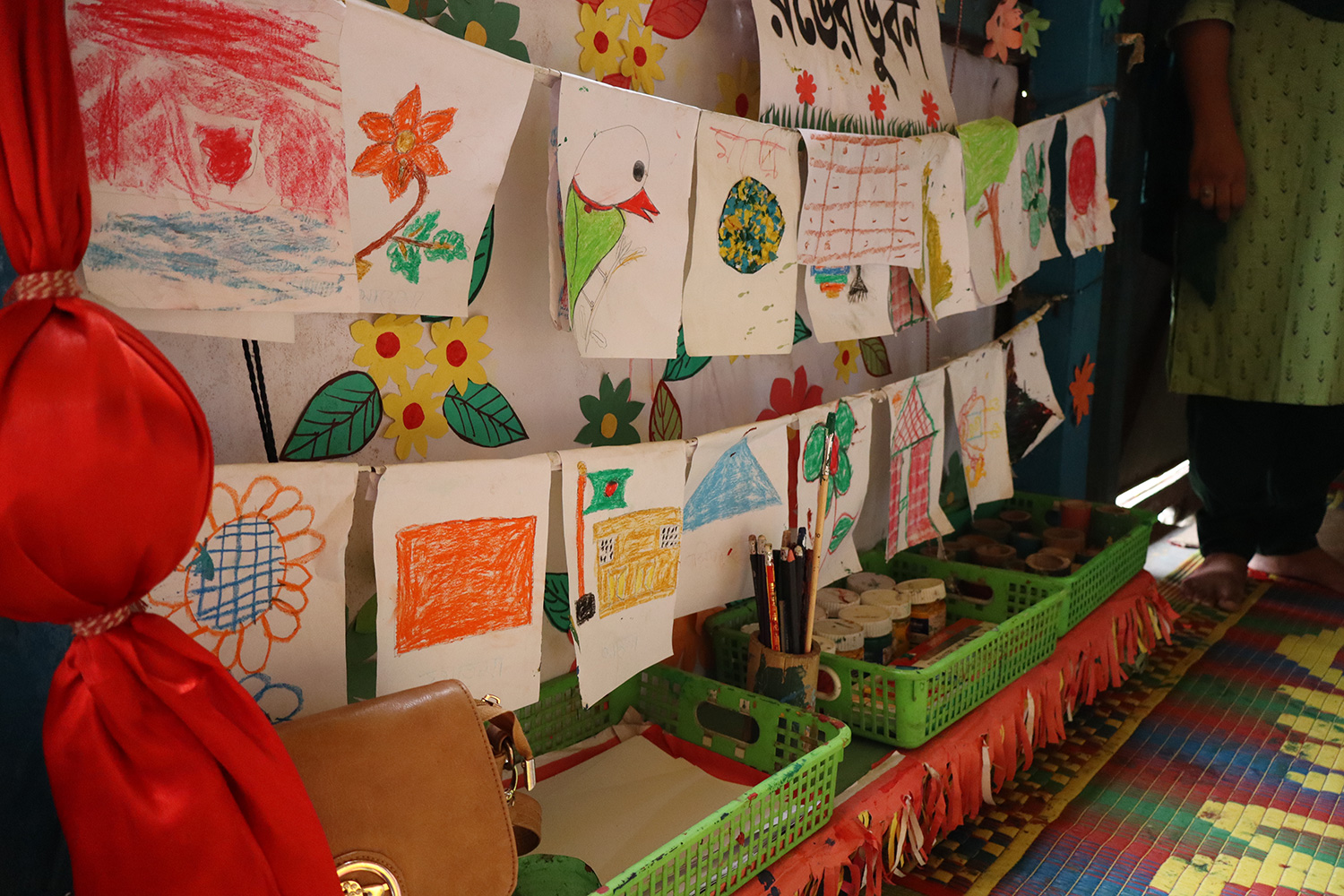
On the playground, we meet Samiya, who says she’d like to be a doctor while waiting to take her turn on the swingset. Rumi, who has command of the swing says she’ll be a police officer. Sadia sits at a pretend stove, shaped out of clay. She rests a clay pot on top, and patiently stirs. She’s making rice, she says, while holding a doll in her hand. But someday, she’d like to be just like Amena. “I want to be a teacher!”
While the children soak up new social and educational skills, their parents get a much-needed break.
“I give my assurance: your child will be safe,” Amena explains. “Don’t worry. Go back to your chores. Go to your work – some moms are household help for other families. But don’t worry for these next hours. Do your own thing. It’s important to look after yourself.”
When school’s out, children pass Amena in the street and say, “let’s play!” The moms? “They see me and ask, “Can I drop my kids off?,” she quips.
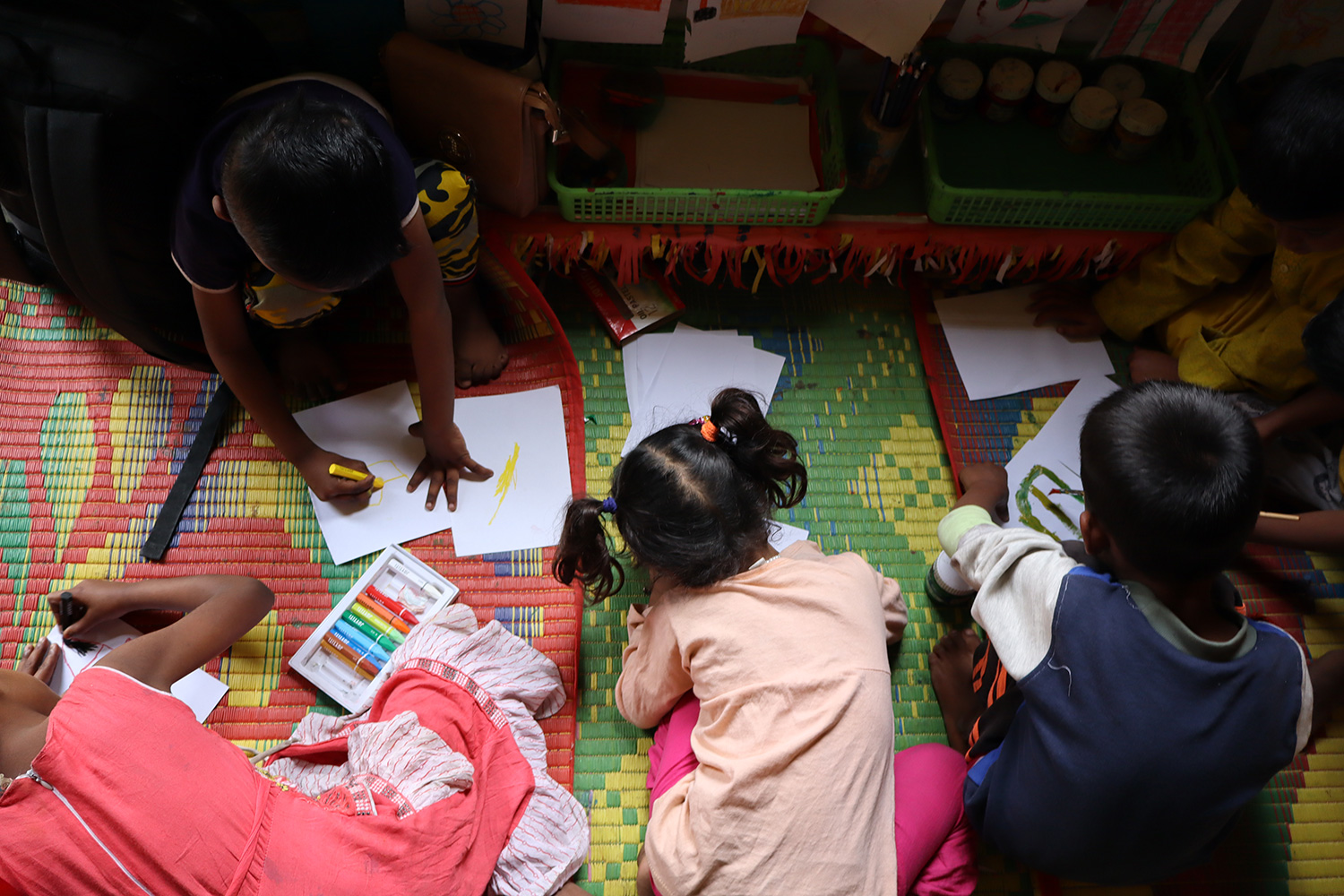
Mica Bevington is Director of Communications and Digital Fundraising at BRAC USA.